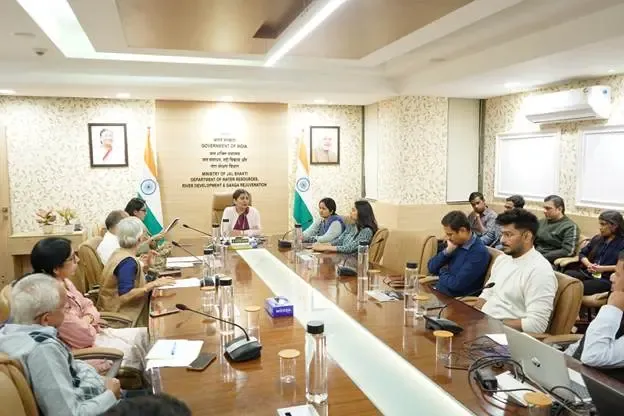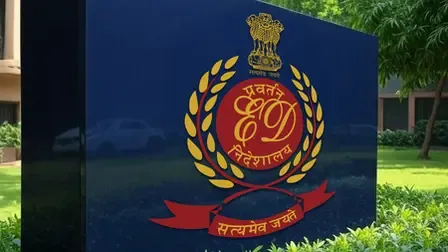How is the Water Resources Department Raising Awareness on Sexual Harassment at Work?

Synopsis
Key Takeaways
- The POSH Act aims to create a safe workplace for women.
- Awareness is crucial as many employees are unaware of their rights.
- Organizations must implement effective training and awareness programs.
- Misconceptions about compliance hinder genuine commitment to safety.
- Active participation in ICCs is essential for effective implementation.
New Delhi, Nov 21 (NationPress) In an effort to create a gender-sensitive and fair workplace, the Department of Water Resources, River Development and Ganga Rejuvenation (DoWR, RD and GR) conducted an informative workshop focused on the Prevention of Sexual Harassment (POSH) Act, 2013, as reported on Friday.
The event, chaired by the Economic Adviser and the Chairman of the Internal Complaints Committee (ICC), featured a presentation on the key aspects of the POSH Act by Janvi Satpal Babbar, an Advocate and External Member of the ICC, according to a source from the Union Ministry of Jal Shakti.
The purpose of this initiative was to provide DoWR, RD and GR employees with an in-depth understanding of both the legal stipulations of the Act and its overarching goal—to establish a culture that respects dignity and equality in the workplace, as stated in an official release.
A report from 2024 reveals that an alarming 40 percent of working women facing workplace insecurity are unaware of the protections afforded by the POSH Act.
The study by Walchand Plus underscored the pressing necessity for a fundamental shift in approach to ensure workplace safety.
Only 42 percent of workers fully understand the POSH Act, the report disclosed.
This lack of awareness, as pointed out by the research, highlights the critical need for improved education regarding the Act's provisions.
The findings also shed light on widespread misconceptions within organizations, where compliance with the Act is frequently regarded as a mere formality rather than a sincere effort to create a safe environment for women.
Surveys reveal that 53 percent of HR professionals are uncertain about the Act.
Moreover, the research indicated that HR managers are troubled by the underrepresentation of women and the inclination to minimize harassment issues at senior management levels.
“As a woman, I believe India still has a long road ahead in addressing gender inequality. In many respects, we remain a patriarchal society. Ensuring the safety of women at work should be a fundamental expectation; however, many organizations approach this issue superficially,” remarked a representative from Walchand PeopleFirst.
The research pointed out that obstacles such as the absence of senior women in Internal Complaints Committees (ICCs) hinder the effective implementation and adherence to the POSH Act's provisions.
It also stressed the essential role of training sessions that extend beyond legal education to cover procedural aspects and cultivate a preventive culture.
The report called for a proactive response from organizations, advocating for urgent actions to fill the identified gaps.
The POSH Act, 2013, was enacted following the Supreme Court’s landmark Vishaka judgment to guarantee a safe, secure, and dignified workplace for women.
This legislation provides a comprehensive legal structure to prevent, prohibit, and address incidents of sexual harassment, clearly defining the offense and detailing employers' responsibilities for compliance.
It mandates the establishment of ICCs in organizations with ten or more employees and emphasizes not only a structured grievance redressal mechanism but also proactive measures such as awareness, sensitization, and capacity-building.
Through these provisions, the Act seeks to cultivate a gender-sensitive, respectful, and equitable work environment for all employees.









